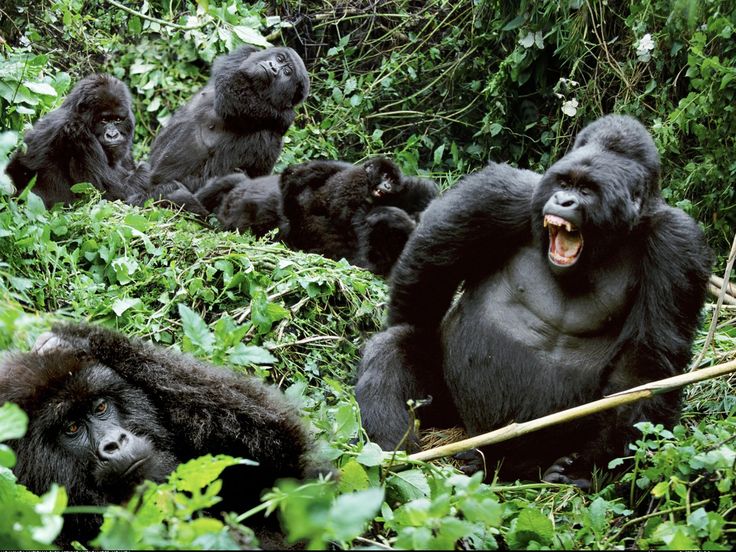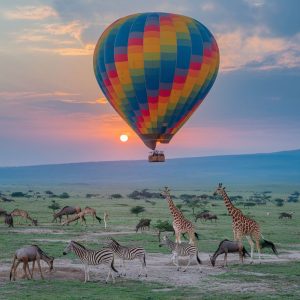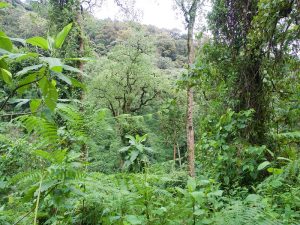Rwanda Wilderness Safaris.
Rwanda Wilderness Safaris. Rwanda, the “Land of a Thousand Hills,” is a gem of East Africa, offering breathtaking landscapes, rare wildlife encounters, and a deeply enriching cultural heritage. Beyond its remarkable history, Rwanda has emerged as one of Africa’s most exciting safari destinations, where lush green hills meet pristine wilderness. From the mystical Virunga Mountains to the shimmering waters of Lake Kivu, Rwanda invites adventurers to explore its vibrant ecosystems and discover its unique charm.
This guide delves into Rwanda’s wilderness safaris, showcasing top destinations, activities, and tips to help you plan your unforgettable journey. Rwanda Wilderness Safaris.
Why Choose Rwanda for a Wilderness Safari?
Rwanda’s wilderness offers a unique blend of adventure, biodiversity, and exclusivity. Known primarily for its mountain gorillas, Rwanda also boasts savannahs, wetlands, and tropical rainforests. Visitors can enjoy a mix of traditional safari game drives, primate trekking, birdwatching, and cultural experiences.
Key Highlights
- Mountain Gorillas: Trekking to see endangered mountain gorillas in their natural habitat is an unparalleled experience.
- Big Game Safaris: Akagera National Park offers game drives with chances to see lions, elephants, rhinos, and giraffes.
- Biodiversity Hotspot: Home to a variety of primates, birds, and unique flora.
- Stunning Landscapes: Rolling hills, volcanic mountains, and serene lakes make Rwanda’s wilderness visually captivating.
- Sustainability: Rwanda prioritizes eco-tourism, ensuring its wildlife and habitats are preserved for future generations.
Top Wilderness Safari Destinations in Rwanda
1. Volcanoes National Park
- Highlight: Mountain gorilla trekking in the misty Virunga Mountains.
- Why It’s Special: This park is the jewel of Rwanda’s wilderness, famous for its connection to Dian Fossey’s gorilla conservation efforts.
- Wildlife: Mountain gorillas, golden monkeys, bushbuck, and various bird species.
- Activities:
- Gorilla trekking.
- Golden monkey trekking.
- Hikes to Mount Karisimbi, Mount Bisoke, or Dian Fossey’s research site.
- Best Time to Visit: Dry seasons (June to September and December to February) when trekking trails are less muddy.
2. Akagera National Park
- Highlight: The only savannah park in Rwanda offering classic game drives.
- Why It’s Special: A conservation success story, Akagera is now home to the “Big Five” (lion, leopard, elephant, rhino, and buffalo).
- Wildlife: Lions, giraffes, zebras, rhinos, elephants, hippos, crocodiles, and over 500 bird species.
- Activities:
- Game drives through the park’s varied landscapes.
- Boat safaris on Lake Ihema to see hippos and crocodiles up close.
- Guided nature walks and birdwatching tours.
- Best Time to Visit: June to September, when animals gather around water sources.
3. Nyungwe Forest National Park
- Highlight: One of Africa’s oldest rainforests, renowned for its primate populations.
- Why It’s Special: Nyungwe offers a tranquil wilderness experience with a rich diversity of flora and fauna.
- Wildlife: Chimpanzees, colobus monkeys, L’Hoest’s monkeys, and hundreds of bird species, including the great blue turaco.
- Activities:
- Chimpanzee tracking for an up-close encounter with our closest relatives.
- Canopy walks for breathtaking views of the forest from above.
- Nature hikes through over 13 trails offering different levels of difficulty and scenery.
- Best Time to Visit: The dry season (June to September) offers better conditions for hiking.
4. Lake Kivu
- Highlight: A stunning lake offering relaxation and water-based activities.
- Why It’s Special: Lake Kivu provides a peaceful retreat after the thrill of safaris and treks.
- Activities:
- Kayaking, boat trips, and fishing.
- Visits to islands like Napoleon Island, home to thousands of bats.
- Cultural tours in surrounding towns like Gisenyi.
- Best Time to Visit: Year-round, as the weather near the lake is consistently pleasant.
Wilderness Safari Activities in Rwanda
1. Gorilla Trekking
- Where: Volcanoes National Park.
- What to Expect: A challenging yet rewarding trek through dense forest to observe mountain gorillas in their natural habitat.
- Permits: Gorilla trekking permits cost $1,500 per person and should be booked months in advance due to high demand.
- Tips:
- Wear sturdy hiking boots and carry gloves to navigate the terrain.
- Bring waterproof clothing and a walking stick.
2. Game Drives
- Where: Akagera National Park.
- What to Expect: Morning and evening game drives to see wildlife in their natural habitats.
- Tips:
- Early morning drives offer the best chance of spotting predators.
- Hire a guide for expert wildlife spotting.
3. Chimpanzee Tracking
- Where: Nyungwe Forest National Park.
- What to Expect: A guided trek to find chimpanzees in their natural environment.
- Tips:
- Prepare for steep trails; moderate fitness is required.
- Be patient—chimpanzees move quickly through the forest.
4. Canopy Walks
- Where: Nyungwe Forest.
- What to Expect: A thrilling experience 50 meters above the forest floor on a suspended bridge.
- Tips:
- Ideal for birdwatching and panoramic views.
- Wear comfortable shoes for the forest trails leading to the walkway.
5. Birdwatching
- Where: Akagera, Nyungwe, and Volcanoes National Parks.
- What to Expect: Over 700 bird species, including Albertine Rift endemics like the Rwenzori turaco.
- Tips:
- Bring binoculars and a field guide to enhance your experience.
When to Visit Rwanda
Rwanda is a year-round destination, but the best times for safaris depend on your planned activities:
- Gorilla Trekking: Dry seasons (June to September and December to February) are ideal for gorilla trekking due to easier hiking conditions.
- Game Viewing: June to September is best for Akagera National Park, as animals gather around water sources.
- Birdwatching: The wet season (March to May and October to November) is excellent for birdwatchers, as migratory species arrive.
Travel Essentials for a Rwanda Safari
Packing Tips
- Clothing:
- Neutral-colored, lightweight clothing for game drives.
- Waterproof jackets for trekking.
- Sturdy hiking boots and gloves for gorilla and chimpanzee treks.
- Gear:
- Binoculars for wildlife viewing.
- Camera with a good zoom lens.
- Reusable water bottle.
- Health Items:
- Yellow fever vaccination certificate (required for entry).
- Anti-malarial medication.
- Insect repellent with DEET.
Entry Requirements
- Visa: Rwanda offers an easy e-visa system for tourists. The East Africa Tourist Visa ($100) allows entry to Rwanda, Kenya, and Uganda.
- Currency: Rwandan Franc (RWF). Credit cards are accepted in major hotels, but cash is recommended for rural areas.
- Transportation: Most safaris use 4×4 vehicles, and domestic flights are available for longer distances.
Sample Itinerary: 7-Day Rwanda Wilderness Safari
Day 1: Arrival in Kigali. Explore the Kigali Genocide Memorial and enjoy local cuisine.
Day 2–3: Akagera National Park. Embark on game drives and a boat safari on Lake Ihema.
Day 4–5: Volcanoes National Park. Trek to see mountain gorillas and golden monkeys.
Day 6: Nyungwe Forest National Park. Experience a canopy walk and chimpanzee tracking.
Day 7: Relax at Lake Kivu. Enjoy water activities and scenic views before returning to Kigali for departure.
Conclusion Rwanda Wilderness Safaris.
Rwanda’s wilderness safaris offer a perfect blend of adventure, tranquility, and ecological wonder. Whether trekking gorillas in the mystical Virunga Mountains, cruising through Akagera’s savannahs, or walking amidst the ancient Nyungwe rainforest, Rwanda provides an intimate and transformative connection with nature. Its commitment to conservation and sustainable tourism ensures that this beautiful country remains an extraordinary destination for generations to come.
Embark on a Rwandan wilderness safari and experience the profound beauty of this East African treasure. Let the “Land of a Thousand Hills” captivate your soul.




